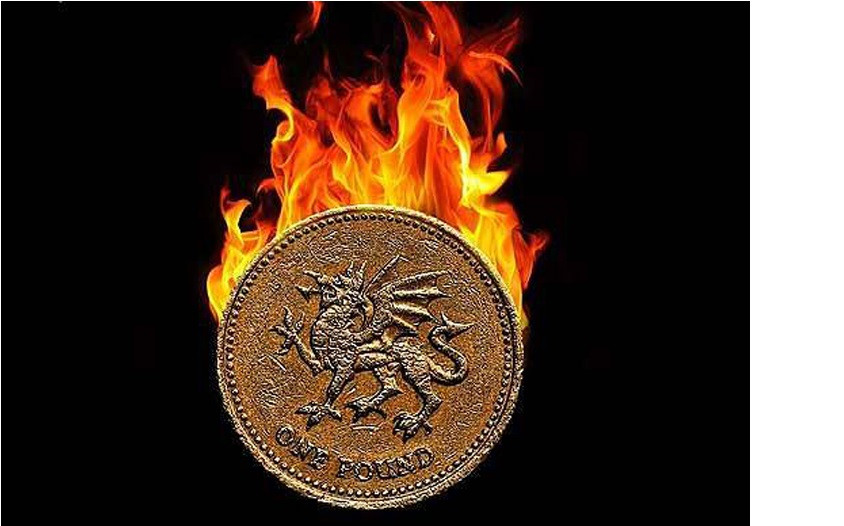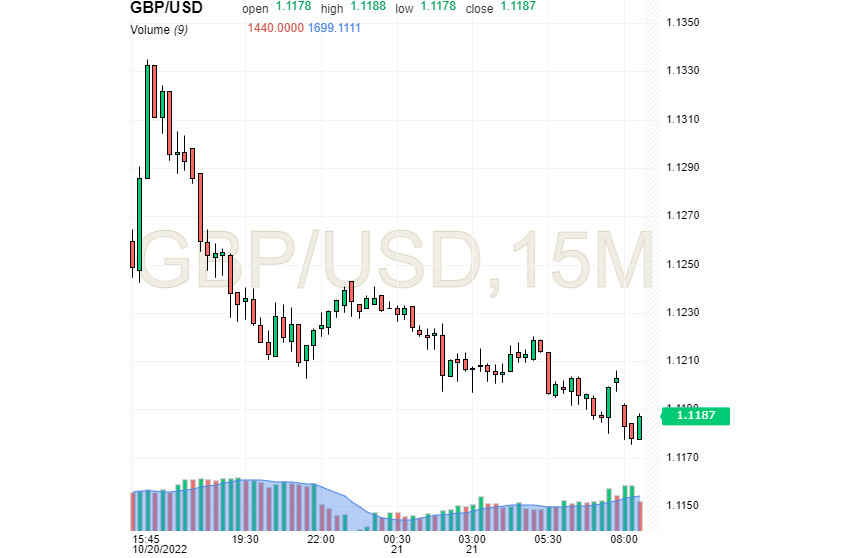
The pound sterling is finishing this week with wild gyrations in an immediate response to the resignation of Liz Truss as a Prime Minister. As a result, GBP's rapid rally was disrupted by a slump, thus causing a roller coaster in the GBP/USD pair.
The first GBP's reaction to the news on Liz Truss stepping down was a rally. In light of the news, the sterling climbed to 1.1300. On Thursday evening, October 20, GBP/USD printed a high at about 1.1336. Analysts spoke about an active rebound of the sterling and a decline in the US dollar in parallel.
Yesterday, the British Premier announced her decision. She remains at the helm of the government until her successor is elected. A lot of market participants suppose that former Prime Minister Boris Johnson could return to the top job. Another contender is Rishi Sunak who is now seen a favorite to replace her. Interestingly, Liz Truss acted as the British Prime Minister for only 44 days, making her the shortest serving-leader in UK history. The financial aid package suggested by Liz Truss was roasted by MPs and recognized as inefficient. Eventually, her mini-budget was terminated because it triggered turmoil across financial markets and undermined Great Britain's reputation in terms of financial stability.
Paul Dales, Chief UK Economist at Capital Economics, thinks that "Whoever takes over at Prime Minister from Liz Truss will probably have to tighten fiscal policy in the Medium-Term Fiscal Plan on 31st October (rather than just reverse the previous loosening) to prove their fiscal restraint to the financial markets. As such, it's possible that the recession will be deeper." Due to this policy on the back of rampant inflation, the recession challenge is likely to worsen with GBP contracting at a fast pace. "Weaker GDP will contribute to an easing in domestic price pressures, but just not soon enough to prevent the Bank of England from raising interest rates from 2.25% now to 5.00%," the economist said.
In this environment, market participants expect the Bank of England to soften its stance on rate hikes. However, some experts don't recommend that the market should rely on significant softening by the monetary authorities. William Mersters, senior UK sales trader and analyst at Saxo Bank reckons that "Sterling's game of snakes and ladders is far from over, yet it's unlikely GBP will show many signs of long-term recovery." "The economy is likely to continue to suffer at the hands of rising inflation, which has led to crippling everyday costs affecting households and businesses up and down the UK, reiterated by yesterday's stubbornly high CPI announcement," the experts explains.
On Friday morning, October 21, the pound sterling dipped 0.21% to 1.1215 against the US dollar following a spike to 1.1338 recorded yesterday. Earlier, following the announcement by Liz Truss, the sterling loosened its grip over the greenback. As a result, GBP/USD declined to 1.1187 and got stuck in this area with minor upticks.

Citing Joel Kruger, market strategist at LMAX Group, "The event does not come as a surprise as the pressure for this inevitability was building in recent days. We don't expect to see much downside risk to the Pound from the event, and if anything, wouldn't be surprised to see some demand as the market looks to find comfort in the alternative."
Analysts share the viewpoint that the resignation of Liz Truss is to blame for short-term chaos in financial markets. Nevertheless, the stock market is on the path to recovery. Ongoing political jitters have been bullish both the pound sterling and for British government bonds. Experts are betting on the sterling's strength in the long term, even though its dynamic is currently marked by strong gyrations.





















